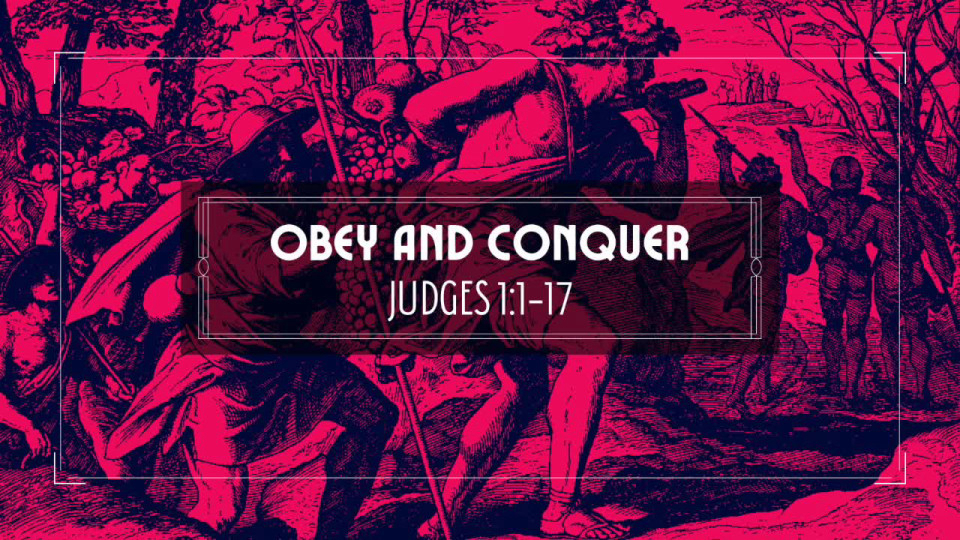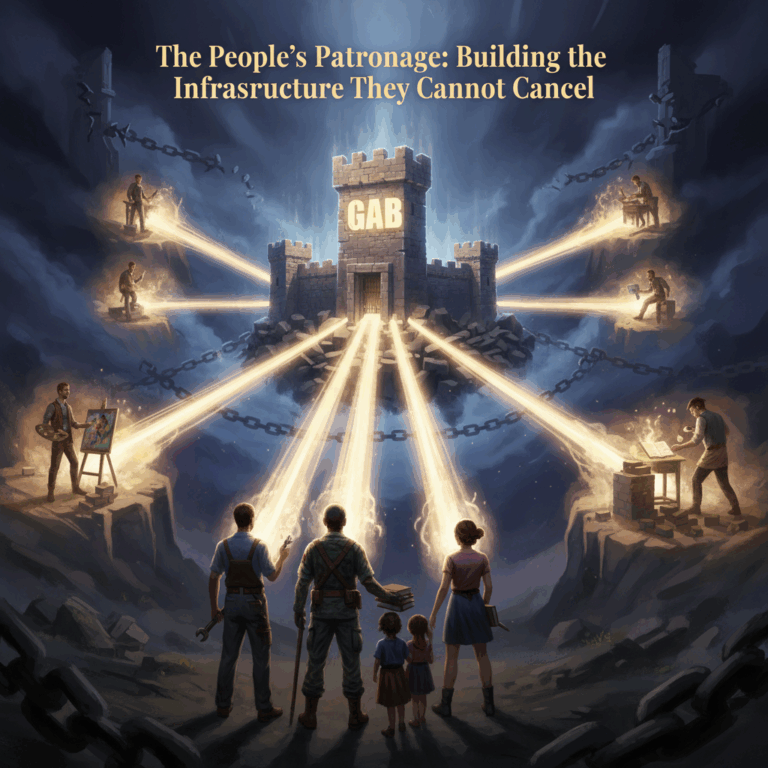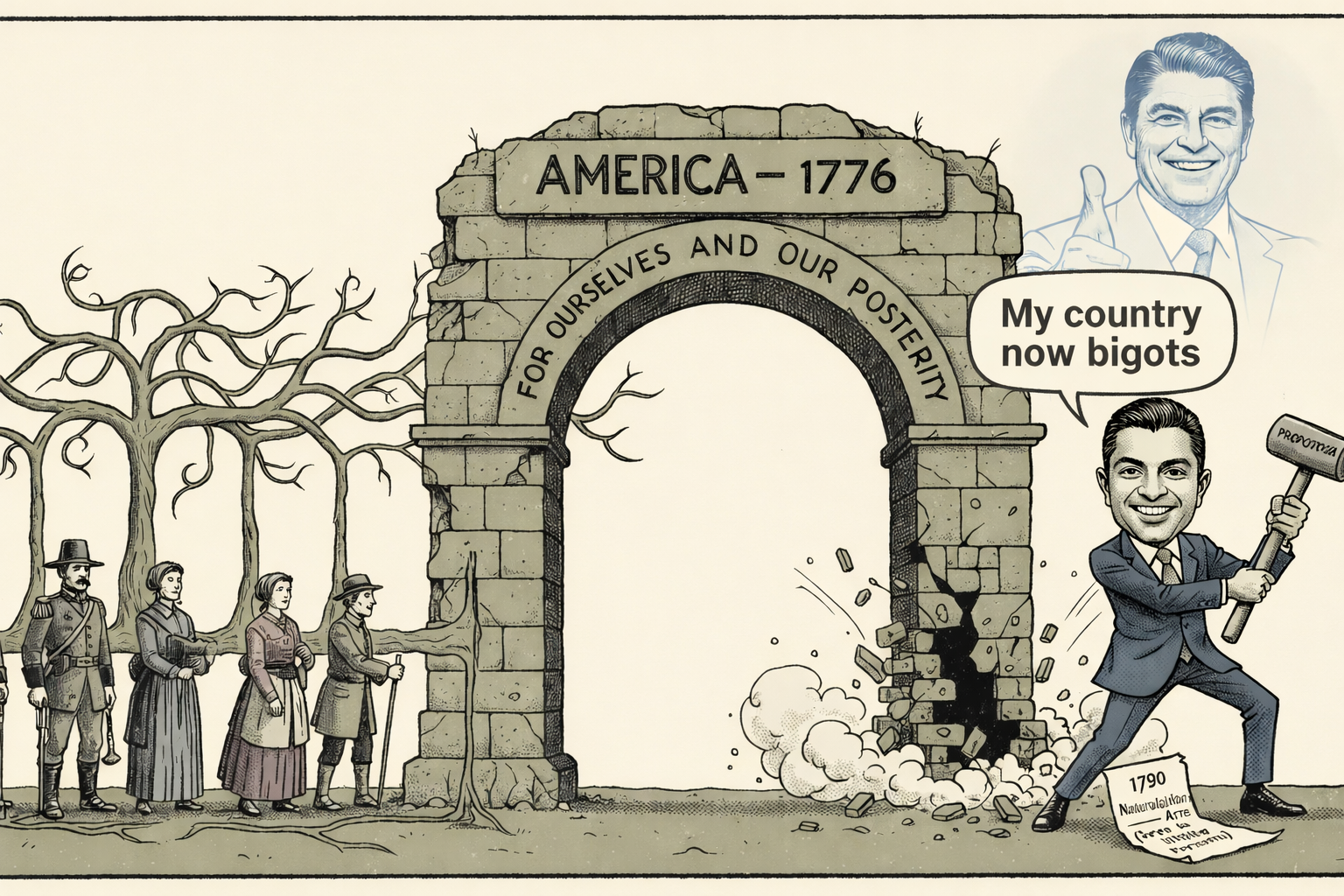by Andrew Isker / Boniface Option
We are beginning a new series of sermons on the book of Judges. It is not a book that you get many sermons on. For many of you, this may be the first time you have ever heard a sermon on this book. The great tragedy of the evangelical church in the modern-day is how little we value the first two-thirds of God’s Word. We think the New Testament is all that matters, that the Old Testament has been put out to pasture. But this part of God’s Word is foundational to all that comes after it. If we don’t understand what God has said before the New Testament, it will badly mess up how we read the New Testament.
1 Now after the death of Joshua it came to pass that the children of Israel asked the Lord, saying, “Who shall be first to go up for us against the Canaanites to fight against them?”
2 And the Lord said, “Judah shall go up. Indeed I have delivered the land into his hand.”
3 So Judah said to Simeon his brother, “Come up with me to my allotted territory, that we may fight against the Canaanites; and I will likewise go with you to your allotted territory.” And Simeon went with him.
4 Then Judah went up, and the Lord delivered the Canaanites and the Perizzites into their hand; and they killed ten thousand men at Bezek. 5 And they found Adoni-Bezek in Bezek, and fought against him; and they defeated the Canaanites and the Perizzites. 6 Then Adoni-Bezek fled, and they pursued him and caught him and cut off his thumbs and big toes. 7 And Adoni-Bezek said, “Seventy kings with their thumbs and big toes cut off used to gather scraps under my table; as I have done, so God has repaid me.” Then they brought him to Jerusalem, and there he died.
8 Now the children of Judah fought against Jerusalem and took it; they struck it with the edge of the sword and set the city on fire. 9 And afterward the children of Judah went down to fight against the Canaanites who dwelt in the mountains, in the South, and in the lowland. 10 Then Judah went against the Canaanites who dwelt in Hebron. (Now the name of Hebron was formerly Kirjath Arba.) And they killed Sheshai, Ahiman, and Talmai.
11 From there they went against the inhabitants of Debir. (The name of Debir was formerly Kirjath Sepher.)
12 Then Caleb said, “Whoever attacks Kirjath Sepher and takes it, to him I will give my daughter Achsah as wife.” 13 And Othniel the son of Kenaz, Caleb’s younger brother, took it; so he gave him his daughter Achsah as wife. 14 Now it happened, when she came to him, that she urged him to ask her father for a field. And she dismounted from her donkey, and Caleb said to her, “What do you wish?” 15 So she said to him, “Give me a blessing; since you have given me land in the South, give me also springs of water.” And Caleb gave her the upper springs and the lower springs. 16 Now the children of the Kenite, Moses’ father-in-law, went up from the City of Palms with the children of Judah into the Wilderness of Judah, which lies in the South near Arad; and they went and dwelt among the people. 17 And Judah went with his brother Simeon, and they attacked the Canaanites who inhabited Zephath, and utterly destroyed it. So the name of the city was called Hormah.
This book, Judges, starts at the end of the conquest of Canaan. Israel had been in slavery in Egypt and God had led them out of Egypt in the Exodus, destroying the greatest power on earth with ten plagues, and burying the entire Egyptian army in the Red Sea. God leads Israel to Sinai, gives them the law, the tabernacle, and the sacrificial system, then has them mustered to conquer the Land that He promised to Abraham. Israel sends in ten spies, 2 say the Land is great and we can take it. The other 8 say there are giants in the land and they persuade the people to disobey God’s command. So God judges that generation except for the two spies. Israel has to stay in the wilderness for 40 years until all the men of military age who disobeyed drop dead, except for Joshua and Caleb. After they die, Joshua leads Israel in the conquest of Canaan, obeying God’s command to leave nothing alive, all Canaanite men, women, children, and even the animals to be put to the sword. Israel obeyed this with mixed results, and their incomplete obedience will have an effect on them throughout this book of Judges and the rest of the Old Testament.
Our passage today deals with the very end of the book of Joshua. Israel is still conquering the land and now begins to exist as a people without a human leader. The question throughout this book is if God alone is their king, will they obey Him or not? And what happens when they do not?
Judah and Simeon Conquer the Lord of Lightning (v. 1-7)
Joshua has died and the children of Israel go to the tabernacle to inquire of the Lord. In the Old Testament system, God gave the high priest something called an ephod, and this object was used to practice divination that was sanctioned by God. Essentially, God gave Israel a holy magic 8-ball. And here they asked God which tribe should go up against the Canaanites. And so God chose the royal tribe, Judah, and tells them God has delivered the Canaanites into Judah’s hand. The tribe of Judah asked the tribe of Simeon to come with to Judah’s territory since Simeon and Levi had been cursed by God to not inherit the land of their own back in Genesis 49. So Simeon joined Judah. Simeon and Judah go and kill ten thousand Canaanites at the city of Bezek (Lightning).
From there they found the Canaanite king, Adoni-Bezek, literally Lord of Lightning and they captured him, cutting off his thumbs and big toes. This might seem gruesome. And it is. They did this because of the lex talionis, the law of an eye for an eye. This Canaanite king had made vassals of 70 kings, and the sign of their submission to him was having their thumbs and big toes all cut off (making it impossible for them to wage war against him). The number 70 here is significant. When God uses that number in the Bible it almost always points to the number of nations in Genesis 10. The Lord of Lightning symbolically is the king of all the nations of the world, and Judah and Simeon have defeated him. The picture we are given here is God’s people striking down the world leader in rebellion against God.
The place of his execution is also symbolically significant. They didn’t just kill him on the spot. They waited until they had conquered the city of Melchizedek, the place where their father Abraham had met the priest-king of God Most High and paid tithes to him. This was enough indication to them that this was the most important city in Canaan. They brought this man, the human stand-in for Satan, to Jerusalem to be executed.
The Conquest of Canaan, A Love Story (v. 8-15)
Judah takes Jerusalem and cleans this important city with fire. Melchizedek is gone, the worship of God Most High has been overtaken by the worship of Baal and Molech and so the city has to be put to sword and fire. From there, Judah attacked the Canaanites south of Jerusalem, and then they attacked Hebron, the place where Abraham had dwelt in Genesis, which was called Kiriath Arba or literally “City of Four.” Arba was the name of a giant, the greatest of the Anakim in Joshua 14. And three of his giant sons were Sheshai, Ahiman, and Talmai. And Judah killed these three giants.
It is interesting to think about Caleb, along with Joshua, the only spies who were obedient to God and willing to attack Canaan, who survived the judgment in the wilderness, and what he must have thought those 38 years in the wilderness after Israel had been condemned by God to wander—just waiting for 38 years, eating manna and quail every day. Waiting for the disobedient cowards to drop dead. Thinking about the land that he had spied out and how exactly he would go about conquering it. Thinking about giants that he would kill. He got to have his pick of the land to attack, and so who among all the Canaanites did he choose to fight? The giants. The great objection the disobedient cowards had to conquer Canaan was the presence of giants in the land. And after 38 years of waiting, those giants were his to destroy.
After the destruction of the giants, Caleb made an offer. “Whoever attacks and takes Kirjath Sepher (literally City of Books) I will give my daughter Achsah as wife.” And so Caleb’s nephew Othniel took the city and won his cousin Achsah as his wife. This city in Canaan is called the “City of books,” so it sounds like it was a pretty important place, likely where important records were kept or where the sum of Canaanite religious knowledge was kept. If that is the case, capturing and destroying this city was incredibly important. This was no ordinary Canaanite city. This would also make sense of Caleb offering his daughter as a prize for taking it.
The next part is also interesting. Why does being told about Achsah’s request to her father merit inclusion in the Bible? Why does God want us to know about this? What are we seeing here? The Bride, having been won through victorious warfare, now wants her land to have water. Having the Land is good, but the Land without water is a curse. The Land with water is a new Eden. Some commentators have pointed out the entire episode follows the same sequence as the New Testament: Christ slays His enemies on the cross and wins His Bride, the church. The church asks for and is then given the Spirit afterward at Pentecost, symbolized in living water.
Faithfulness in Executing the Ban (v. 16-17)
The Kenites are not Israelites. They are Midianites who Moses married into when he was exiled from Egypt. Was it a sin for Moses to marry Jethro’s daughter? Often times many Christians have this view of the Old Testament that the only believing people were the Israelites and that all gentiles were unbelieving. But this isn’t the case. Melchizedek was not of Abraham but was a faithful priest to God. And Jethro also was a believer. It was not a sin for Moses to marry Jethro’s daughter. If Jethro had not been a believer it would have been wrong.
But Jethro’s connection to Israel was through Moses, and Moses’s tribe was Levi. Levi had been dispossessed centuries earlier by Jacob when he cursed Levi and Simeon for betraying Shechem and slaughtering all the inhabitants of Shechem who had taken the covenant sign of circumcision after the rape of Dinah. Levi had regained some position in Israel after their obedience during the golden calf incident. But they still were not given any territory for their own. And so, because of this, the Kenites had to join with a tribe that was getting territory so they would have some land of their own. And they chose the tribe of Judah.
Judah, now, repays Simeon and goes with them to take the city of Zephath. They were not allowed to possess entire territories, but could take certain cities for themselves. They totally destroyed the city. Leaving nothing alive and burning it to the ground. That is what the name they gave it means. “Hormah” means devoted to destruction. Here Simeon and Judah were faithful to God. They did not destroy a few of the Canaanites and keep the rest as slaves or tax-slaves. They did not keep the spoils of the city for themselves. Most importantly they did not allow the altars of their enemy to remain. They destroyed the false worship entirely.
Conclusion
In our passage, we see the faithfulness of Israel in obeying God’s command to wipe out the Canaanites and possess the land. Strangely, one of the most controversial things in the Bible is God’s command to utterly wipe out the Canaanites.
Many people even use this to justify the absurd idea that God in the Old Testament is different from God in the New Testament. It is the same God. God also wiped out all the men, women, children, babies, and animals of the entire planet except for those that were on the ark because of the wickedness of mankind. Canaan is a national version of this. God’s wrath had been stored up for centuries against the wickedness of the Canaanites. He told Abraham he would possess the land, but not until the sin of the Amorites was filled up. And now, that sin is filled up. These wicked Canaanites worshiped Gods like Baal and Molech, offering their babies on the altars of these gods so that they would have economic success.
Does that sound familiar to you? Is there any other nation that slaughters its own children by the millions for personal and national economic success? You’re living in it. Do you know what would happen to the United States if tomorrow all abortion and abortifacient birth control were criminalized? There would be an economic collapse. Widespread access to delaying motherhood has given America great wealth. When you can effectively double the size of the workforce, it, in turn, makes your country a lot more productive. This is a subtle reason why giant corporations are on the side of Planned Parenthood and other abortion groups. Take away abortion as birth control and a lot more women will stay home with their children and that will greatly affect profit margins and the productivity of the economy as a whole. In short, murdering babies is good for GDP. And that powers that be absolutely know this. Is it therefore any wonder a country that worships mammon and craves wealth more than anything else would offer up a million babies a year to get the wealth train chugging along?
But God is not mocked. The Canaanites will be destroyed. He’s not going to let this keep happening forever. He let the Canaanites get away with it for a few hundred years, but then the end came. Do we think American idolatry has escaped His view? If there is anything to take away from this, you have to understand that you live in Canaan. And if the stuff you see on the news is scary, and it seems to be getting scarier and scarier by the week, you should take confidence knowing that a nation that does the great evil ours does will not escape the wrath of God.
But our mission, as the people of God, is to conquer Canaan just like God’s people did. Not through sword and fire, but by the sword of God’s Word and the fire of the Holy Spirit. That is how this Canaan will be conquered. It will be through the holy warfare of the people of God. Calling upon His name each and every week, being fed by His Word, and eating at His table together. That is how God’s people conquer today because Christ has given us even more powerful weapons than the sword. His word and His spirit are the weapons of our warfare and are far greater than anything flesh and blood can do. And so the charge to you is this: understand who you are in this story and what faithfulness looks like. You are the people of God conquering Canaan and even terrifying giants will not be able to stop you. In the Name of the Father, the Son, and the Holy Spirit. Amen.
Andrew Isker is the pastor of 4th Street Evangelical Church in Waseca, MN. He studied History at Minnesota State University before attending Greyfriars Hall in Moscow, ID. He was ordained in the Communion of Reformed Evangelical Churches and has served churches in Springfield, MO, and Martinsburg, WV, before returning to his hometown in 2018 and accepting a call from 4th Street Evangelical Church (then Waseca Wesleyan Church) in 2020. He and his wife Kara have six children, five living and one who has gone to be with the Lord. He can be found on Gab @BonifaceOption and writes at bonifaceoption.substack.com.





